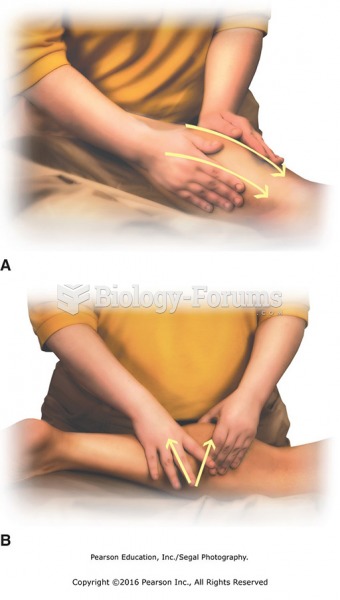|
|
|
There are 20 feet of blood vessels in each square inch of human skin.
Though Candida and Aspergillus species are the most common fungal pathogens causing invasive fungal disease in the immunocompromised, infections due to previously uncommon hyaline and dematiaceous filamentous fungi are occurring more often today. Rare fungal infections, once accurately diagnosed, may require surgical debridement, immunotherapy, and newer antifungals used singly or in combination with older antifungals, on a case-by-case basis.
Women are 50% to 75% more likely than men to experience an adverse drug reaction.
Green tea is able to stop the scent of garlic or onion from causing bad breath.
Thyroid conditions cause a higher risk of fibromyalgia and chronic fatigue syndrome.







